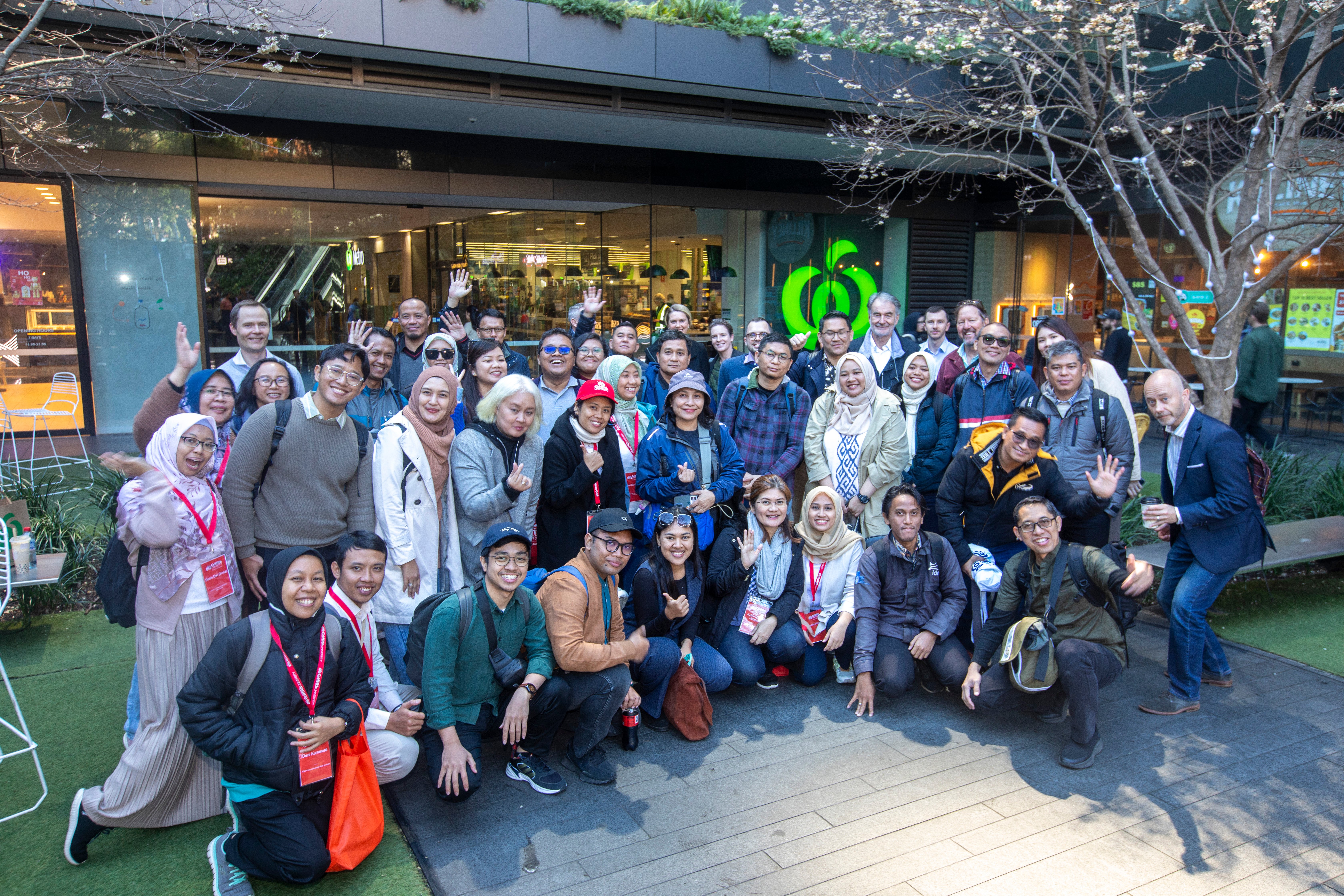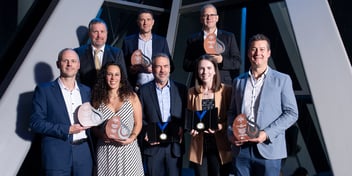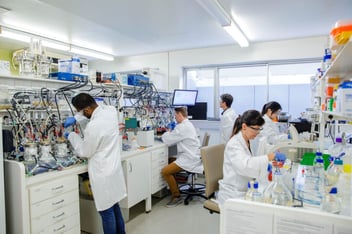Altogether Group and International WaterCentre welcomes AWA and Indonesian Water Experts to Central Park's recycled water centre
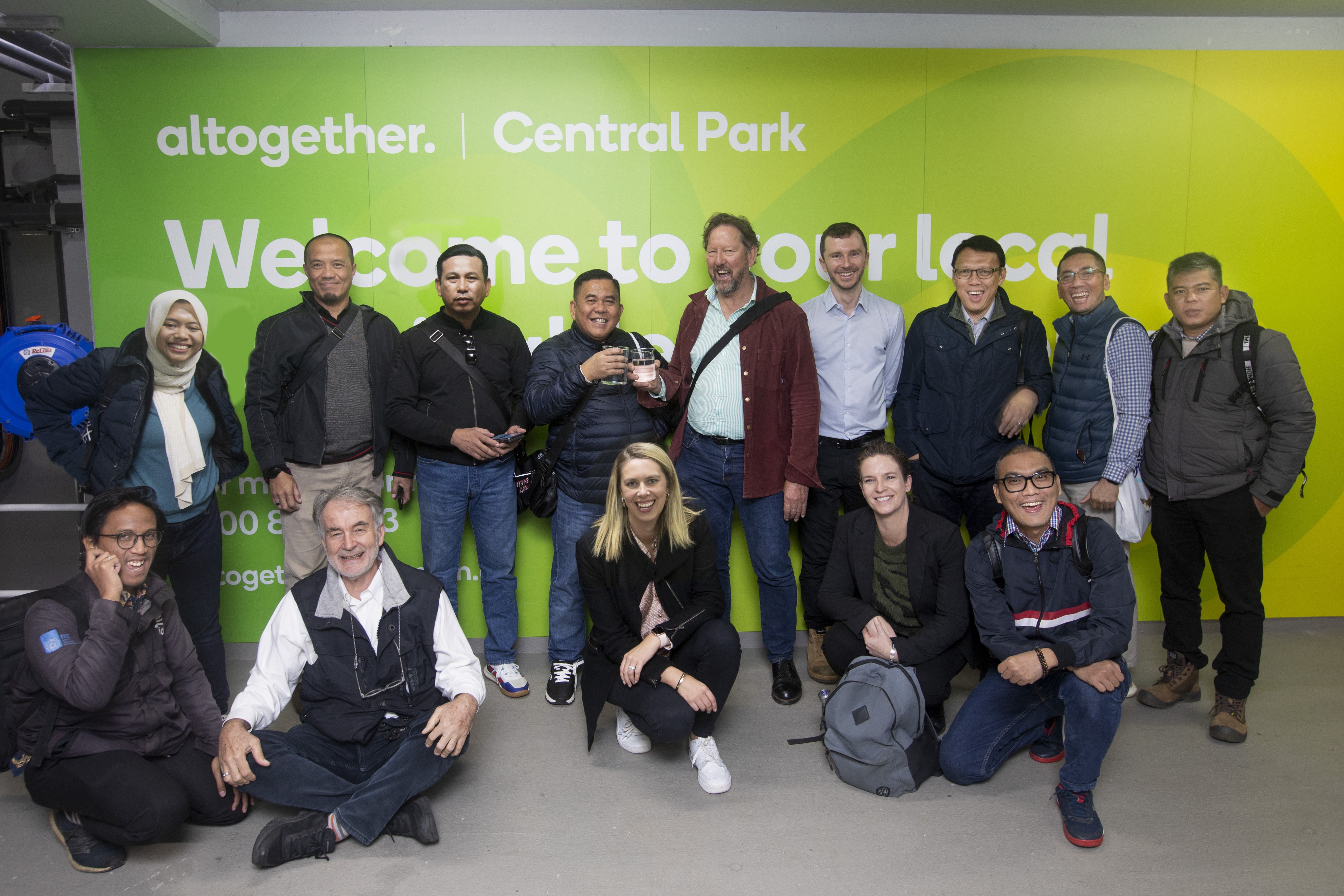
Australia’s world-leading sustainable water practices were front and centre when a delegation from Indonesia toured the state-of-the-art recycled water centre at Sydney’s Central Park development last month (July).
The International WaterCentre (IWC) at Griffith University last month welcomed 27 participants of the Australian Awards Indonesia 2-week Short Course ‘Water Utility of the Future’. Participants were from a range of backgrounds from national level Ministries concerned with strategy, planning and financing of water and wastewater infrastructure and services to water utilities themselves at local government level. Water and wastewater service planning and delivery is a national and a local responsibility in Indonesia.
The IWC team led the design and delivery of the course program, which was designed to assist participants in learning systemically from Australia’s experience in water reform, water investment and financing, water tariff setting and price regulation, water policy, utility strategic asset planning, digitisation, workforce planning and performance benchmarking along with circular economy approaches for water including water recycling, biochar production and biogas to grid production, planning for climate change impacts and addressing gender equality, disability and inclusion (GEDSI).
Also on the tour were Nicky Bekker, AWA's Project Lead for International Development & Trade, and Katie Hanniffy, AWA’s Head of International and Industry Programs, who work with international delegations providing valuable insights for addressing water challenges in their home countries.
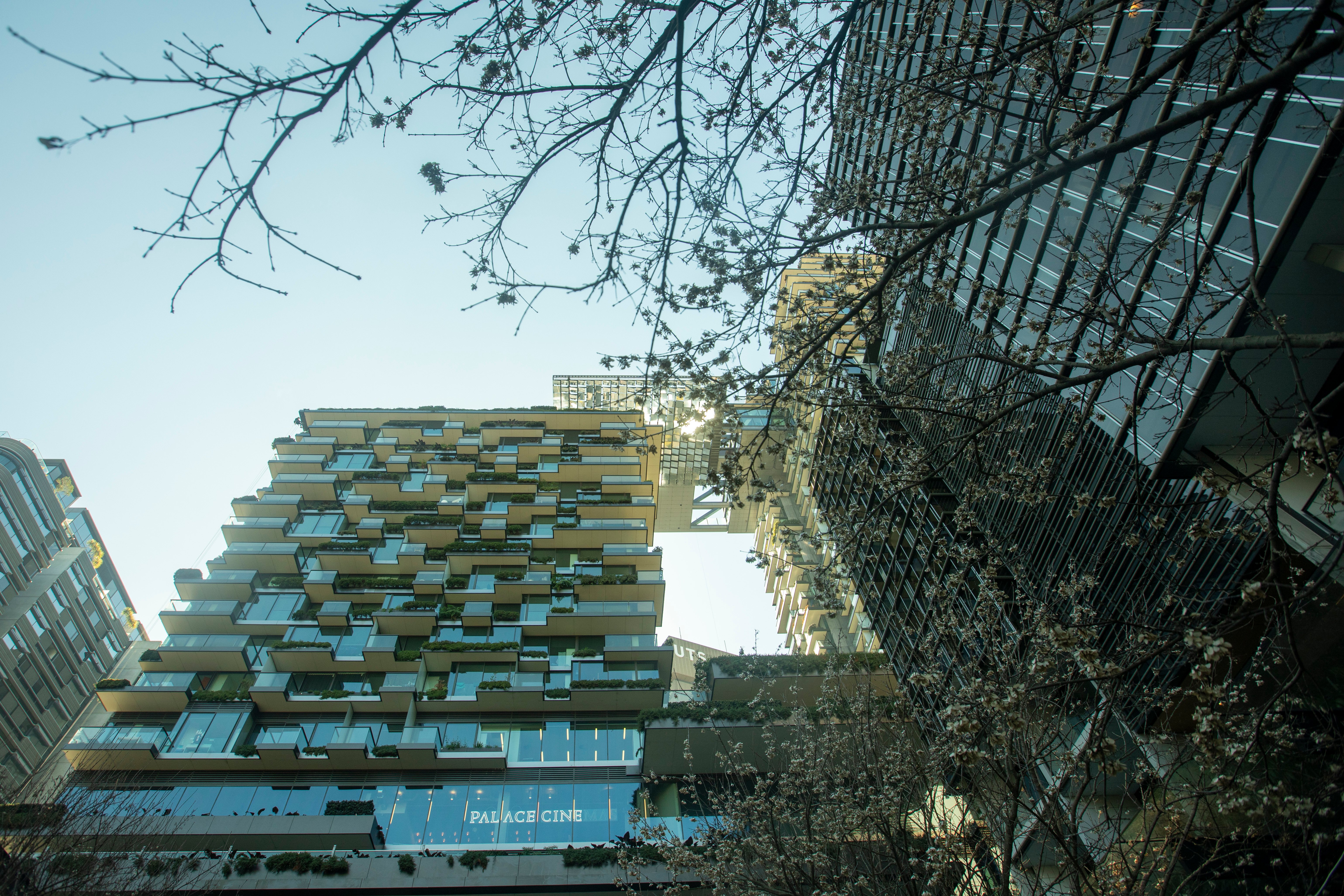
They were hosted on the tour by Altogether Group, a prominent player in providing sustainable water solutions for urban communities and who operate the ground-breaking Central Park system.
“One of the key takeaways from this tour was the common requirement to emphasise the value of water to all people, despite our international differences,” says Audrey Killeen, Head of Water Operations at Altogether Group.
“Water is an invaluable resource, and it's essential that we continue to work together to ensure its sustainable management for future generations.”
The integrated water system at Central Park recycles water through an advanced treatment process, ensuring a reliable and environmentally-friendly water supply for residents, businesses and even the nearby University of Technology Sydney (UTS).
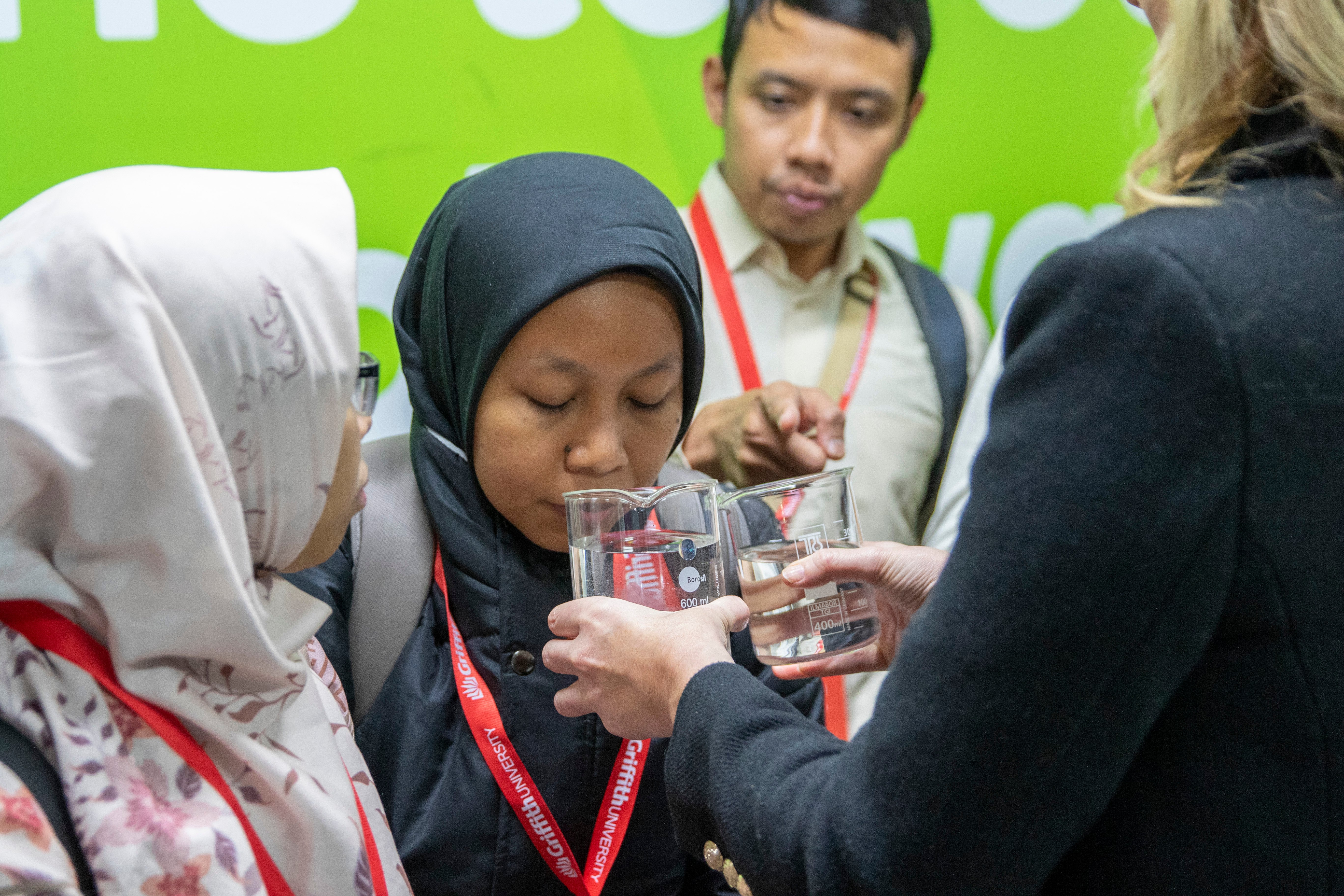
In a world-first, the Altogether plant is connected to the basement of UTS Central located across Broadway in a partnership that enabled the UTS building to meet its Green Star requirements without having to install a massive rainwater tank.
Inside the water centre's control room, the visitors were shown a treatment video and a demonstration of the advanced Skada technology, which enables seamless water monitoring and management.
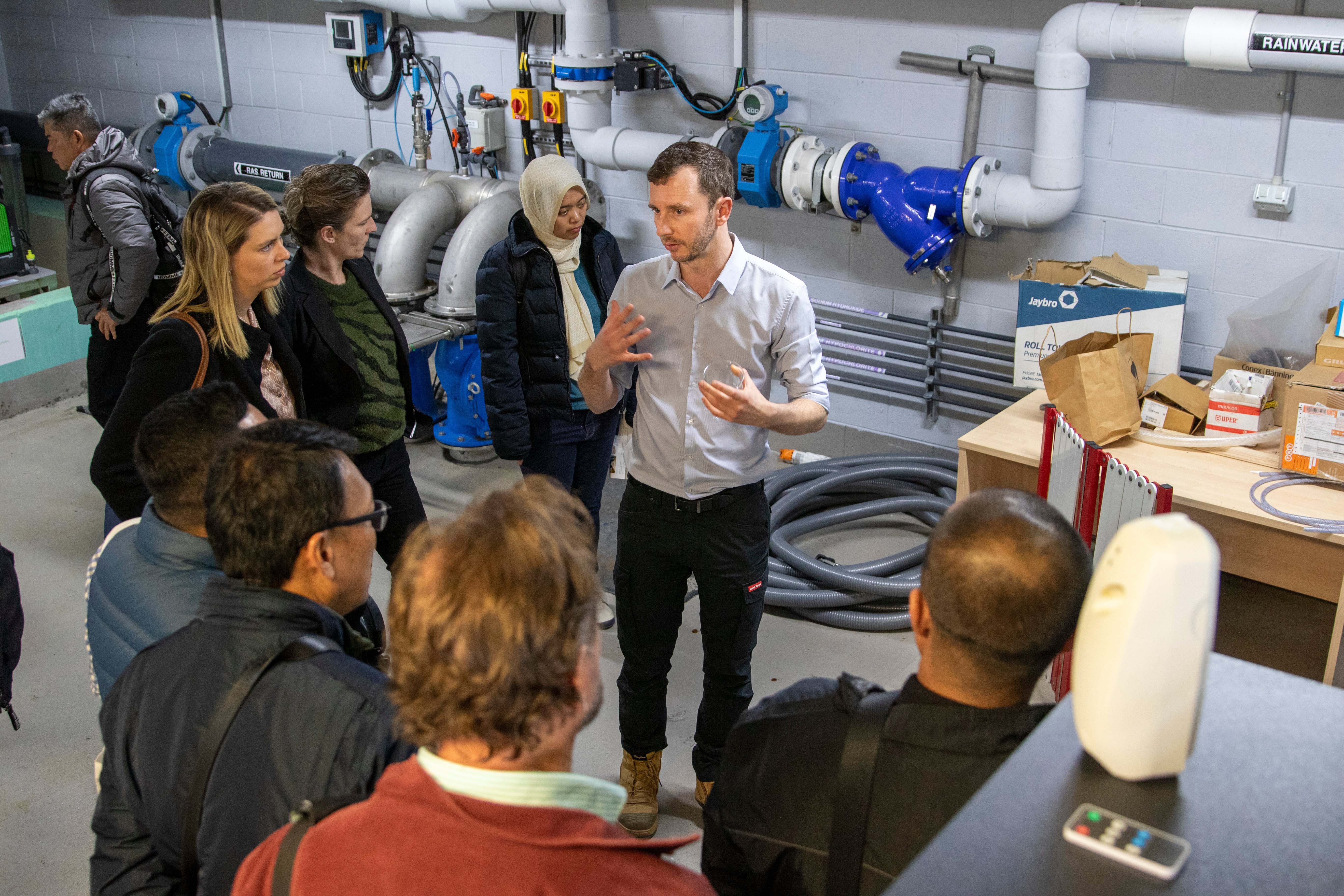
Killeen says the Indonesian group were particularly interested in the chemical process for water treatment, how the development began, the partnerships that were created during construction, and the reactions of customers to using recycled water.
In Indonesia, currently 35 million people do not have access to water and 70 million lack basic sanitation. Those who have access to water supply and sanitation services often must cope with intermittent water supply, sewerage system overflows, and poor customer service.
Professor Brian McIntosh, Education Director of International WaterCentre says “Being able to engage our Indonesian colleagues in learning about alternative ways of structuring and delivering water and wastewater services through the real life example of Central Park and the approach taken by Altogether was terrific. Thank you to Terry and the team at Altogether. And thank you to the international team at AWA for engaging and helping to foster stronger relationships and learning between our two national water sectors. Working collectively within and across countries is our pathway to fostering the learning that will drive improvement in water and wastewater service delivery.”
